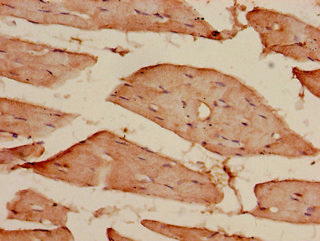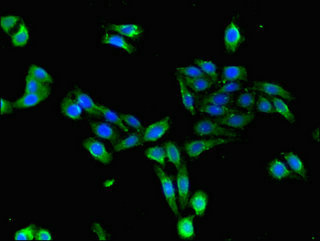Full Product Name
Rabbit anti-Homo sapiens (Human) CDKAL1 Polyclonal antibody
Alternative Names
CDKAL1; Threonylcarbamoyladenosine tRNA methylthiotransferase; CDK5 regulatory subunit-associated protein 1-like 1; tRNA-t(6A37 methylthiotransferase
Immunogen
Recombinant Human Threonylcarbamoyladenosine tRNA methylthiotransferase protein (1-97AA)
Immunogen Species
Homo sapiens (Human)
Conjugate
Non-conjugated
The CDKAL1 Antibody (Product code: CSB-PA716574LA01HU) is Non-conjugated. For CDKAL1 Antibody with conjugates, please check the following table.
Available Conjugates
| Conjugate |
Product Code |
Product Name |
Application |
| HRP |
CSB-PA716574LB01HU |
CDKAL1 Antibody, HRP conjugated |
ELISA |
| FITC |
CSB-PA716574LC01HU |
CDKAL1 Antibody, FITC conjugated |
|
| Biotin |
CSB-PA716574LD01HU |
CDKAL1 Antibody, Biotin conjugated |
ELISA |
Purification Method
>95%, Protein G purified
Concentration
It differs from different batches. Please contact us to confirm it.
Buffer
Preservative: 0.03% Proclin 300
Constituents: 50% Glycerol, 0.01M PBS, PH 7.4
Tested Applications
ELISA, IHC, IF
Recommended Dilution
| Application |
Recommended Dilution |
| IHC |
1:20-1:200 |
| IF |
1:50-1:200 |
Storage
Upon receipt, store at -20°C or -80°C. Avoid repeated freeze.
Lead Time
Basically, we can dispatch the products out in 1-3 working days after receiving your orders. Delivery time maybe differs from different purchasing way or location, please kindly consult your local distributors for specific delivery time.
Usage
For Research Use Only. Not for use in diagnostic or therapeutic procedures.








